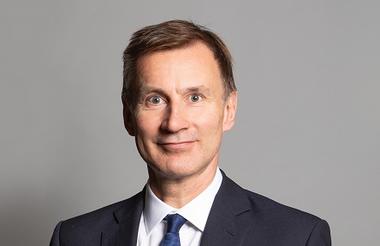A coalition of more than 50 organisations has urged chancellor Jeremy Hunt to streamline and review the charity tax system ahead of the Spring Budget next month.
In a recently published submission, the Civil Society Group said that it was a “critical moment” for charities as demand for their services is skyrocketing while operational costs have hugely risen due to soaring inflation.
The group called for the implementation of a new special VAT rate on charities’ purchases to address the tax’s burden on the sector.
It also reiterated calls for greater energy bill support beyond March and an uplift to government contracts for public services in line with inflation to cover the true cost of service delivery.
“Charities are an essential part of the social fabric in communities, but also of the public services ecosystem. The immediate consequences of contraction in charity sector activity will be felt in already very thinly stretched public service delivery,” it said.
VAT an ‘obstacle’ to service delivery
The group said the government must address the issue of irrecoverable VAT by introducing a new special charity VAT rate of 0% on purchases made by charities.
This, it argued, would be a simple and effective step that would help reduce the £2bn VAT burden for charities and result in “important savings for the sector”.
It said: “VAT is intended as a tax on consumption. Charities, however, only make purchases to enable them to provide what is needed and desirable in society. They operate, by definition, for the public benefit. At times of crisis, charities are often the first organisations to answer calls for help – seen during the pandemic and now in the cost-of-living crisis. VAT represents an obstacle to delivering more services to those in desperate need, as demand for charity services is skyrocketing.
“Successive governments have acknowledged that VAT administration has been an undue burden for charities and have introduced targeted reliefs to reduce the scale of the problem, but they have been constrained by EU law from doing anything more radical. Currently, there is no general VAT relief for charities: there is a complicated mix of special reliefs, exemptions, zero ratings and concessions.”
The Charity Tax Group (CTG), a long-standing supporter of changes to VAT rules, also urged the government to extend VAT relief on advertising to social media.
It said in its own budget submission: “This is a clear example of a relief which, as with Gift Aid, needs modernising to ensure that it supports the original intention of the relief: to ensure that charities do not pay VAT on advertising.
“Given the growth of social media advertising year on year, it’s important that legislation and HMRC guidance keeps up with commercial practices and is appropriate for the digital age. “The resistance to modernising this relief is costing charities millions of pounds in additional VAT.”
Further support with energy bills
While the group welcomed the government’s Energy Bills Discount Scheme (EBDS), it said the level of support will be insufficient if energy prices remain elevated.
It called on the government to offer a higher discount on energy costs through EBDS and extend additional support through the Energy and Trade Intensive Industries scheme to more charities.
“Charities may require a high level of energy use to deliver services adequately. This could involve heating a building or operating certain equipment. Such organisations cut across a range of sectors including but not limited to health and social care, domestic abuse, homelessness, refugee and asylum seeker, leisure and culture, children and young people, and warm hubs,” it said.
“Maintaining a certain level of energy usage is particularly important for organisations serving those who will be made vulnerable and put at risk by not having access to warmth, such as children, older people, pregnant people, people with very low body weight, and disabled people.”
In addition, the group would like to see government grants for charities so that they could fund energy efficiency improvements in their properties and lower their energy costs.
“Many frontline charities are operating out of older, energy-inefficient community buildings, which increases their energy costs. Research from the Ethical Property Foundation in 2022 found that 42% of charities were dissatisfied with their premises because these were not energy efficient. Despite this, there is a lack of funding available to support these organisations to invest in improving efficiency.”
Uplift to government contracts
The group noted that the voluntary sector’s income from local government dropped by 26% in the year to 2019-20 and that two thirds of charities subsidise contracts as they are not paid enough to cover their costs.
In light of high inflation, it demanded that the government uplift all existing and new public service contracts in line inflation and provide extra funding to local authorities so that they cover the true cost of delivering services.
“Despite the value that voluntary, community and social enterprises bring to public services, they only account for around 5% of government spend on contracts. To ensure contract opportunities are given serious consideration by the voluntary and community sector, those contracts must recognise the cost of delivering services and the economic context for fulfilling their requirements.”
The Spring Budget is due to be published on 15 March.
Related articles












